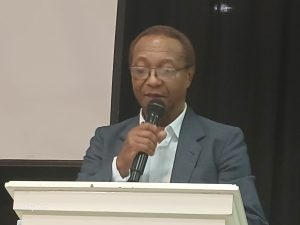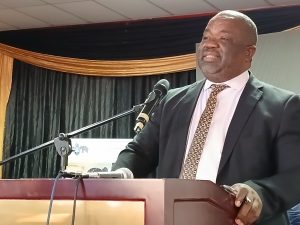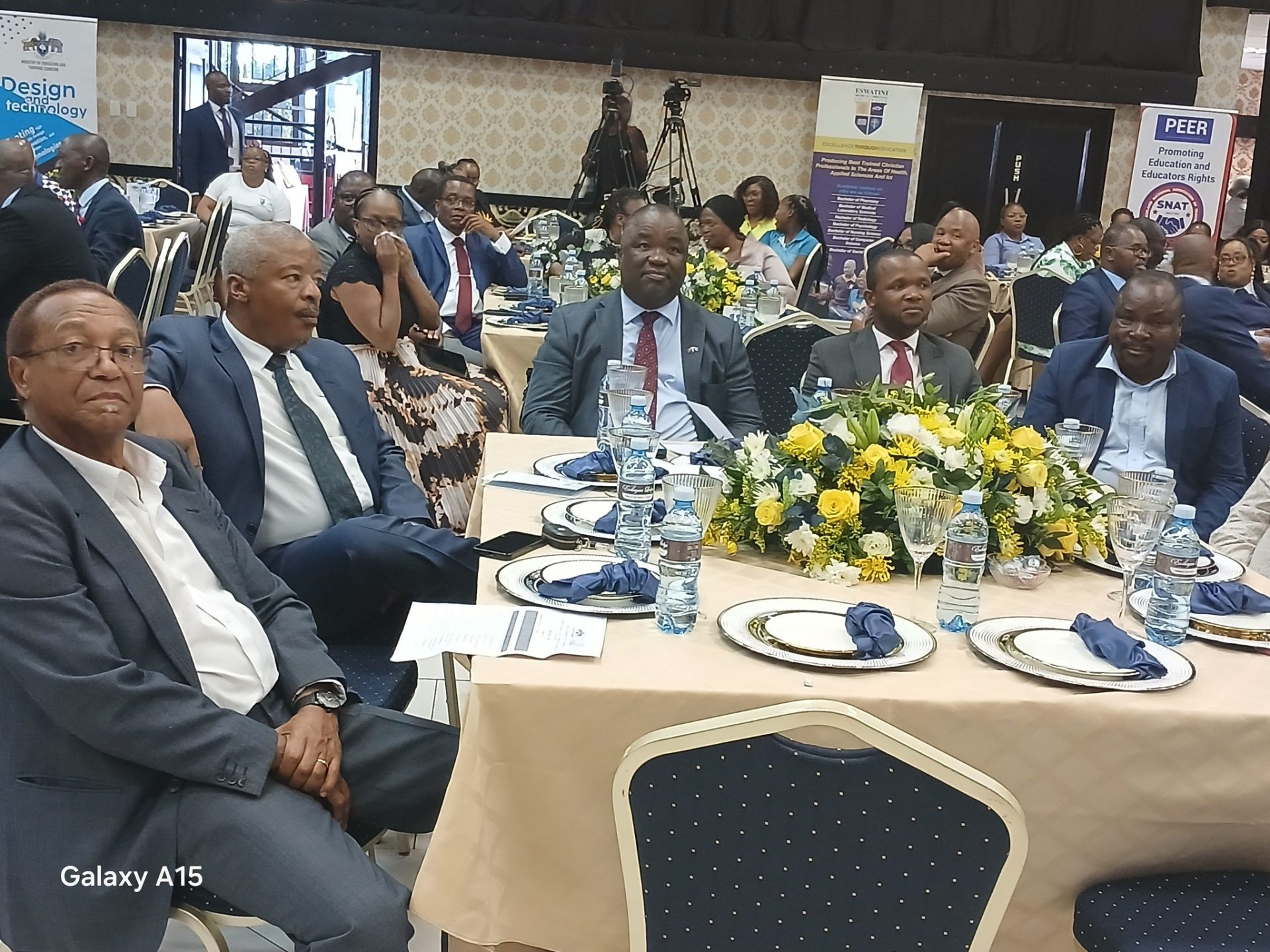By Ncaba Ntshakala
The Kingdom of Eswatini’s government is making strides in research and development infrastructure to enhance innovation and foster collaboration among academia, research institutions, and the private sector.
This commitment was highlighted by the Minister of Education and Training, Owen Nxumalo, during his speech at the World Teachers’ Day celebration.
Nxumalo pointed to the Royal Science and Technology Park, established in 2015, as a prime example of the nation’s dedication.
The park is dedicated to advancing information technologies and biotechnology, creating a supportive environment for innovation.
RELATED: Government condemns bribery allegations within education sector
“We are not just investing in infrastructure; we are also building partnerships to drive innovation forward,” Nxumalo stated.
“By collaborating with academia, research institutions, and private sector players, we aim to unlock the potential that can transform Eswatini into a hub for scientific and technological progress.”
The Minister elaborated on various policy frameworks established to support the Kingdom’s scientific agenda, including the Science, Technology, and Innovation (STI) Policy, the National Research Council Act, and the Bio-economy Strategy.
He also mentioned the enactment of the Cybersecurity Act to safeguard the digital landscape.
Additional initiatives include the creation of the Science Academy and the Women in Science, Engineering, and Technology constitutions, which aim to promote gender inclusivity in scientific disciplines.
Nxumalo recognized the Ministry’s role in these initiatives through direct collaboration with teachers, emphasizing that education is vital to national development.

However, the Minister acknowledged ongoing challenges facing the education sector, particularly in the wake of the Covid-19 pandemic.
“Like all countries in Africa and beyond, Eswatini has been significantly impacted by the pandemic, which disrupted social sectors, especially education,” he remarked.
Despite progress in reducing poverty and inequality, the school dropout rate remains high, posing a significant challenge to achieving quality education for everyone.
Nxumalo also addressed the broader societal challenges presented by climate change, noting that Eswatini has experienced extreme weather patterns disrupting food security, energy availability, and water and sanitation services.
RELATED: Eswatini on par with EU countries on free education and healthcare
He emphasized that the most affected groups, particularly children and individuals with disabilities, are also impacting teachers in these communities.
During his address, Nxumalo commended teachers for their active participation in regional events leading up to World Teachers’ Day.
He assured that the Ministry had carefully noted the concerns raised, which highlighted several urgent issues impacting education quality and teacher welfare.
“Teachers across regions expressed challenges such as inadequate training in new curriculum initiatives, delays in filling vacancies, late grant payments, and reduced food rations in schools,” Nxumalo noted.
“These issues threaten to undermine the quality of education.”
The Minister stressed the need for parents to take a more proactive role in supporting education, with teachers emphasizing the importance of prioritizing practical subjects in the curriculum.
Regarding teacher welfare, Nxumalo addressed several concerns raised, including insufficient accommodation, low travel allowances, poor working conditions in rural schools, lack of medical aid, salary discrepancies for contract teachers, and the urgent need for more Grade 0 teachers.

In response to these concerns, Nxumalo reaffirmed the Ministry’s commitment to creating a platform that ensures teachers’ voices are heard in all educational areas, including policy formulation.
He urged teachers to engage constructively through ongoing consultations with their unions rather than resorting to protests or violent demonstrations.
“A contract represents an agreement with clearly defined responsibilities,” Nxumalo explained, encouraging teachers to prioritize dialogue through regular consultations with unions as the most effective way to tackle challenges.
“We have established a positive working relationship with teachers’ and administrators’ organizations, including the Eswatini Principals Association (EPA) and the Swaziland National Association of Teachers (SNAT). These collaborations are crucial for progress in the education sector.”
Nxumalo concluded by advocating for a respectful and professional approach to engagement within the sector, emphasizing the importance of tolerance and mutual understanding.
“Only through open dialogue and collaboration can we find sustainable solutions to the challenges we face,” he stated.


